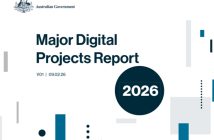
The Swiss Secretariat for International Finance (SIF) and Elevandi have concluded the three-day, in-person-only Point Zero Forum in Zurich on 23 June 2022. The inaugural Forum attracted over 1,000 senior-level attendees, including numerous founders, investors, and policymakers, as well as featured more than 200 esteemed speakers from Europe, Asia-Pacific, the USA, and MENA.
Point Zero Forum aims to provide an annual platform for global leaders across the public and private sectors to drive the meaningful exchange of ideas and knowledge to advance FinTech and Web3 in the digital economy. There were impactful discussions amongst senior leaders from governments and businesses across 31 plenary sessions, 9 Regulatory Roundtables, and 13 Workshops and ThinkTanks. 9 Innovation Tours were held across Zug and Zurich to showcase the latest developments in Web3 and sustainable finance. In addition, the Forum facilitated more than 300 meetings between the high-profile audience.
The following are the key takeaways of Point Zero Forum 2022.
Web3/Tokenisation:
- Current market conditions, combined with likely increased regulation, create increasingly challenging times for Web3 players. However, this also represents an opportunity to build innovative companies that focus on utility in the real economy, and not speculation;
- As a function of transitory and persistent shocks, there is significant inflationary pressure and central banks are taking forceful actions to prevent the price/wage spiral. Despite tightening monetary policy, inflation is not expected to come down to levels we have seen in the past. However, technology can be used to increase efficiencies and reduce costs;
- Trust as a key theme came up frequently – besides compliance basics (Know Your Customer, Anti-Money Laundering), there is a need for crypto players to create and sustain trust across all participants (users, regulators, policymakers, and traditional players);
- Decentralised finance (DeFi) use cases span from custody to tokenisation of securities, and it is a space where traditional financial institutions are actively taking part, working with regulators to make the activities safer. Innovation and use cases will continue, but we will also see checks and balances created to ensure safety similar to traditional finance (e.g., regulatory capital/liquidity requirements); and
- The space is fast maturing – Web3 operators are accepting regulatory oversight particularly when it comes to retail and institutional client protection. DeFi trading infrastructure proved its robustness during the bear market and is providing features similar to traditional trading. As the market matures, traditional and Web3 investors are both actively looking at investing in the opportunity – both central and peripheral.
Sustainable Finance:
- Reversing the impact of fossil fuel usage over the past 250,00 years requires concerted actions by the public and private sectors. Private sector capital is essential to finance the transition to net-zero; however, asset managers (with typically the highest assets under management) have a fiduciary responsibility to their clients to appropriately manage risk and returns. Therefore, current climate investment opportunities need to be materially de-risked for the private sector investors to play a substantial role in the transition;
- Environmental, Social, and Governance (ESG) is top of mind for corporate leaders, regulators, policymakers, and activists. However, global alignment is required on (a) what data to focus on, (b) how to access the data, and (c) how to incorporate the data in decision making. Having data that is transparent, accessible and credible is essential in ensuring that ESG goals are accurately assessed and met; and
- There is a clear trend of using finance and technology (including Web3) to meet sustainability goals, particularly in conservation finance. Activists are working in close concert with investors, financiers and technologists to scale existing and new tools and technologies to address climate change.
The following announcements around technology and innovation were made at the Forum:
- Global Financial Innovator, Partior, Accelerates International Growth with Full Leadership Team and New India R&D Centre
- Special Chapter of Bank for International Settlements Annual Economic Report
- Citi Partners with METACO to Develop Institutional Digital Asset Custody Capabilities
- Crypto.com Receives In-Principle Approval from the Monetary Authority of Singapore
Sopnendu Mohanty, Chairman of Elevandi Board and Chief FinTech Officer of the Monetary Authority of Singapore, shares, “The inaugural Point Zero Forum coincided with the current crypto meltdown and the climate imperative. Industry leaders representing all parts of the ecosystem, from entrepreneurs, policymakers, and investors, reflected on the urgent need to rethink the path forward and openly discuss opportunities and challenges. This ranged from compliance to regulation and a greater focus on real-economy issues and sustainable innovation. We look forward to bringing back the Forum with an even more significant impact next year.”
Daniela Stoffel, State Secretary, Switzerland’s State Secretariat for International Finance, says, “The conference allowed for an enriching personal exchange with entrepreneurs and authorities in a very short time and in an uncomplicated manner. I am impressed by the innovative power and the vibrancy of the fintech industry and its drivers.”





